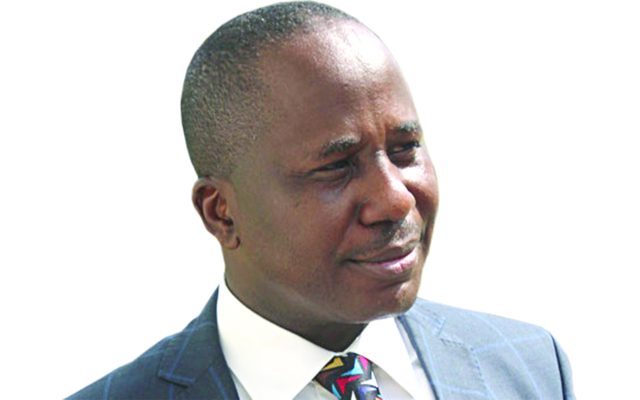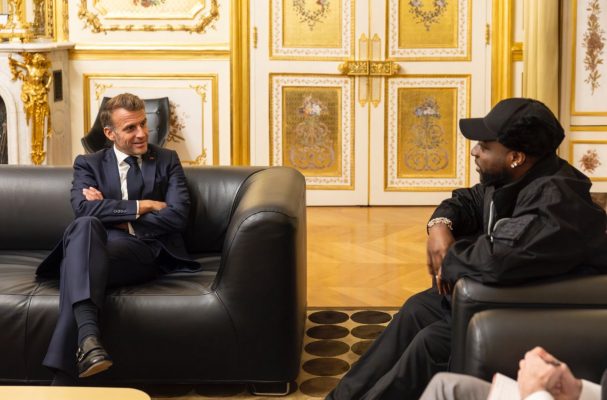Under the stewardship of Professor N’Dri Thérèse Assié-Lumumba, the World Council of Comparative Education Societies (WCCES) recently expanded the Executive Committee of the Global Africa Comparative Education Society by appointing eminent figures of international repute. This decision transcended administrative restructuring; it symbolised the birth of a broader intellectual renaissance. It affirmed that African scholars are not tributaries flowing into global knowledge but mighty rivers in their own right, carrying the lifeblood of ideas across continents. Among those whose work embodies this reawakening is Professor Steve Sinikiem Azaiki, a Nigerian academic, public intellectual, and institution-builder, whose career of more than three decades reflects indefatigable fealty to education, comparative scholarship, and policy innovation.
A Decade Of Service To WCCES
For over 10 years, Professor Azaiki has been an influential voice within WCCES, the umbrella body for comparative education associations worldwide. His dedication was so significant that in 2019 he was formally appointed a Non-Voting Co-Opted Member of the Executive Committee for the 2019–2022 term, an honour bestowed in recognition of his “extraordinary contributions” and his stature as a global thought leader.
Through WCCES, Azaiki became a bridge between Africa and the wider world, championing reform, equity, and the transformative role of science and technology. He persistently challenged the marginalisation of African perspectives, insisting that Africa must not remain a consumer of imported paradigms but must rise as a producer of new intellectual cartographies.
Expanding Influence Across African Networks
Beyond his global engagements, Professor Azaiki extended his influence through appointment into the Executive of the Southern African Society, linking him with leading continental scholars committed to postcolonial education, epistemic decolonisation, and the institutionalisation of African knowledge. In this capacity, he has been a weaver of networks, threading together diverse voices into a tapestry of collective thought and renewal. So compelling is his vision and proven capacity that many prominent and patriotic Nigerians, both within the country and across the diaspora, have voiced their conviction that Professor Azaiki possesses the rare intellectual depth, administrative acumen, and patriotic zeal required to transform Nigeria’s education sector if entrusted with the mantle of Minister of Education. They regard him as an architect capable of rebuilding the collapsing pillars of Nigeria’s educational house, a master craftsman with the vision to turn frail foundations into a fortress of learning and innovation. His leadership is increasingly perceived not merely as desirable, but as indispensable for the renaissance of Nigerian education.
Distinguished Stewardship Across Institutions
In addition to these continental engagements, Professor Azaiki has held positions of extraordinary consequence, each underscoring his stature as both a scholar and a statesman. He served as the inaugural President of the Nigerian Chapter of the Global Organisation of Parliamentarians Against Corruption, representing Nigeria within this global movement for ethical governance. Subsequently, he was appointed an Executive Member of the Board of Governors and Vice Chairman of the World Bank/IMF Parliamentary Network, a role that enabled him to participate directly in international fact-finding missions to Morocco, Ukraine, and other strategic jurisdictions. Between 2017 and 2020, he rendered distinguished service as Pro-Chancellor and Chairman of the Governing Council of Niger Delta University, and he continues to shape educational futures as a Trustee of Hensard University, Toru-Orua, Bayelsa State. More recently, by gubernatorial decree of His Excellency Governor Douye Diri, he was named Chairman of one of five Visitation Panels constituted to evaluate tertiary institutions in Bayelsa State. His devotion to education is not merely institutional but profoundly personal: the Azaiki Public Library, hailed by Professor Lenrie Olatokunbo Aina, Director General of the Nigerian Library Board (2016–2021), as the finest privately owned library in Nigeria, stands as a monumental embodiment of his conviction that knowledge must be both preserved and made accessible to all.
Founding President Of ISCEST Nigeria
Perhaps the most resolute lodestar of Azaiki’s institutional leadership is his founding of the International Society of Comparative Education, Science and Technology (ISCEST) Nigeria. Conceived as a dynamic platform bridging African and global scholarship, ISCEST became a vibrant hub where academics, policymakers, and practitioners converged to explore the role of education, science, and technology in driving development.
At a time when African universities faced underfunding and global marginalisation, ISCEST stood as a bold defiance of the odds, upholding scholarly rigour while fostering international collaboration. Under Azaiki’s visionary leadership, ISCEST convened international conferences that attracted hundreds of participants across disciplines, generating rich dialogue on the intersections of education, science, and technology as engines of transformation. Through ISCEST, Professor Azaiki not only carved a space for excellence but also positioned Nigeria as a central hub of comparative education discourse, advancing Africa’s intellectual presence on the global stage.
Building Think Tanks For Africa’s Future
Azaiki’s vision, however, extends far beyond the realm of scholarly discourse. With pragmatic urgency, he established the National Think Tank Nigeria, a vibrant consortium of experts dedicated to crafting actionable policies for national development. Yet his ambition did not stop at the borders of one nation. Today, he serves with passionate commitment as the Coordinator of the African Policy and Research Consortium (APRC), a continental think tank devoted to education, science, technology, and governance.
This initiative, bold in scope and profound in purpose, seeks to harness Africa’s own indigenous knowledge systems, consolidate the intellectual resources of its finest scholars, and forge solutions uniquely attuned to the continent’s challenges. It is a clarion call to reclaim intellectual sovereignty, ensuring that Africa does not merely adopt imported models but generates the very ideas that will shape its destiny. For Azaiki, this is not an abstract aspiration but a living mandate: Africa must stand as the architect of its own future, the custodian of its knowledge, and the author of its development narrative.
A Scholar And Builder Of Institutions
What distinguishes Azaiki is not simply his scholarly output but his capacity to transform ideas into enduring institutions. From his early advocacy for environmental justice in the Niger Delta to his global leadership roles, he has consistently sought to translate scholarship into structures that benefit future generations. His service to WCCES, leadership in ISCEST, role in the Southern African Society, and creation of think tanks stand as monuments to a life devoted to impactful scholarship. His work embodies a rare synthesis – the pen of the academic, the courage of the activist, and the hands of the builder.
A Vision Beyond The Present
As Africa celebrates the elevation of Professor Assié-Lumumba into the pinnacle of global educational leadership, it is equally imperative to honour the quiet yet resolute architects of intellectual renewal such as Professor Azaiki. His journey illustrates that the continent’s renaissance will not be announced by borrowed voices or fleeting accolades, but by the deliberate labour of those who, like patient master builders, raise enduring pillars upon which future generations may safely stand.
In this unfolding narrative of Africa’s intellectual resurgence, Azaiki emerges not merely as a scholar, but as a compass orienting the continent towards its possible destinies. His career, like a lantern held aloft in the twilight, illuminates pathways that beckon younger generations to tread with courage, resilience, and imagination. Within his vision, Africa’s knowledge is neither peripheral nor subordinate; it is an essential verse in the grand symphony of humanity’s progress.
Indeed, at a time when Africa urgently requires homegrown solutions to its most pressing challenges, Professor Azaiki embodies the model of the scholar-activist who transcends the confines of lecture halls and the pages of journals. He does not only write and teach; he builds institutions designed to outlive him. His vision is lucid and uncompromising – a continent where education, science, and technology are harnessed as engines of sustainable development, and where Africa’s intellectual capital is mobilised as a transformative force to shape its own destiny.
* Gold, a Professor of Management at Colorado State University, U.S., is the Deputy Pro-Chancellor, Edsea Business School/HIBC School of Divinity as well as Co-Chairman, Governing Council, African Policy and Research Consortium.








